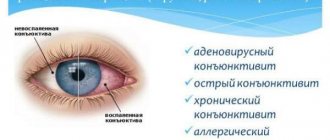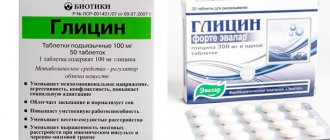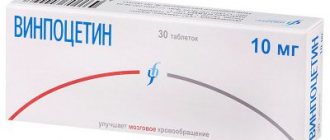The drug Phenazepam has a fairly wide spectrum of action. It is used to relieve panic attacks and treat other psychoneurotic disorders. In addition, Phenazepam is a sleeping pill that is effective in cases where other pills are powerless. However, taking this drug has a number of contraindications and side effects, including a high risk of addiction.
Indications for use
Phenazepam is one of the most potent tranquilizers of the benzodiazepine group.
Phenazepam is used in the treatment of various diseases of the nervous system and chronic mental disorders. Prescribed for:
- neurotic and psychopathic disorders, accompanied by fear, increased anxiety and restlessness, irritability, emotional lability (sudden causeless mood swings);
- nervous breakdowns;
- reactive psychosis;
- panic state;
- insomnia, other sleep disorders;
- alcohol withdrawal (a condition that occurs with alcoholism of the 2nd or 3rd degree as a result of a sudden cessation of alcohol consumption);
- some disorders of the autonomic nervous system;
- muscle rigidity, tics and hyperkinesis;
- some types of epilepsy (as an anticonvulsant);
- certain forms of schizophrenia.
In short courses, a tranquilizer can be prescribed to prevent acute emotional stress (unfortune in the family, death of a loved one). Phenazepam is used for a long time mainly in the treatment of chronic mental pathologies.
Phenazepam may be administered to the patient on the eve of surgery to prepare for general anesthesia and to prevent seizures that may occur during surgery.
Who is the drug prescribed for?
Phenazepam is prescribed by a doctor to patients who have been diagnosed with the following diseases and pathological conditions:
- frequent nervous breakdowns;
- for phobias;
- constant or periodic state of panic;
- developed insomnia;
- with nervous tics;
- often manifested emotional lability - unreasonable changes in mood;
- schizophrenia;
- epilepsy;
- during withdrawal symptoms after stopping the use of alcoholic beverages or drugs.
As you can see, many of the items on the list are symptoms of various diseases or conditions.
Compound
Phenazepam is available in two dosage forms. This:
- tablets for internal use (10, 25 or 50 tablets per package);
- 0.1% solution for intramuscular/intravenous injection (package contains 10 ampoules of 1 ml).
The tablets contain the main active ingredient bromodihydrophenylbenzodiazepine in a dose of 0.5 mg, 1 mg or 2.5 mg and auxiliary components - lactose monohydrate (milk sugar), calcium stearate, croscarmellose sodium, potato starch.
1 ml of injection solution contains 1 mg of bromodihydrochlorophenylbenzodiazepine. As auxiliary compounds - polysorbate 80, distilled glycerin, sodium hydrosulfite and hydroxide, povidone, water for injection.
pharmachologic effect
Phenazepam is a psychotropic drug that depresses the central nervous system. The main pharmacological effects of Phenazepam:
- anxiolytic (eliminates emotional stress, anxiety, fear and worry);
- sedative (reduces the severity of symptoms of neurotic origin);
- sleeping pills (reduces time to fall asleep, improves sleep quality);
- central muscle relaxant (slows down the transmission of nerve impulses, resulting in relaxation of smooth muscle tissue, but can also have a direct inhibitory effect on motor nerves and muscle function);
- anticonvulsant (suppresses the spread of the convulsive impulse, but does not relieve the excitation of the focus).
The active component is quickly absorbed: the tablets begin to act within half an hour after administration, and after 1–2 hours the concentration of bromodihydrophenylbenzodiazepine in the blood plasma reaches its maximum values. The half-life (time for the maximum concentration to halve) ranges from 6–10 to 18 hours.
The duration of action of Phenazepam is influenced by the state of the nervous system, the dosage of the drug and the form of release - when administered as an injection solution, the effect occurs faster, but lasts less.
Contraindications
Contraindications to the use of Phenazepam are:
- closed-angle glaucoma (taking Phenazepam can provoke irreversible complete loss of vision);
- myasthenia gravis (a neuromuscular disease characterized by pathologically rapid fatigue of skeletal muscles);
- shock;
- coma;
- acute poisoning with drugs, alcohol, sleeping pills;
- severe forms of chronic obstructive pulmonary disease and other diseases accompanied by acute respiratory failure;
- severe depression with suicidal tendencies;
- hypersensitivity to the main or auxiliary components of the drug, other benzodiazepine drugs;
- age under 18 years;
- pregnancy (especially early stages), breastfeeding.
Phenazepam is prescribed with caution for:
- renal failure;
- liver failure;
- ataxia (impaired coordination of movements of various muscle groups in the absence of muscle weakness);
- tendency to drug addiction;
- apnea syndrome;
- organic pathologies of the brain (tumors, previous operations);
- hypoproteinemia (low protein in the blood);
- sensory disturbances or motor function disorders;
- acute psychosis.
During the period of therapy, you should not drive vehicles or other devices or perform dangerous work, since while taking a tranquilizer, concentration deteriorates and reactions slow down.
During pregnancy and breastfeeding
In the first three months of pregnancy, taking Phenazepam is prohibited, since the active component penetrates the placenta and has a toxic effect on the fetus, which can lead to the formation of severe birth defects.
It is allowed to take Phenazepam in the second and third trimesters, but only for health reasons and under strict medical supervision. Long-term use of the drug by a pregnant woman can lead to the development of drug dependence in the fetus. And taking a tranquilizer shortly before birth can cause severe depression in the newborn’s central nervous system, respiratory function and cardiac activity.
What is the duration of treatment with Phenazepam?
The standard course of treatment with Phenazepam is on average 2 weeks. During this short period of time, the patient does not have time to develop dependence on the medication. Accordingly, Phenazepam withdrawal syndrome does not occur, which is very important. For some diseases, doctors prescribe a period of therapy within 1-2 months.
In such cases, after completion of treatment, a gradual withdrawal of Phenazepam will be carried out under the supervision of a doctor. The effect of taking the drug lasts within 6-8 hours. But if, after this period, the patient’s blood and urine are taken for tests, residual doses of the drug will be detected in them.
You should know that the breakdown products of Phenazepam are eliminated from the body within a week. The residual amount of the drug does not cause toxic reactions when taking other medications or alcoholic beverages. When a patient has certain kidney diseases, the period of time during which Phenazepam is completely eliminated from the body increases.
It is these internal organs that help remove the remaining active substance of the drug from the body in the urine. Therefore, serious kidney disease is a contraindication to the use of Phenazepam. After all, when the kidneys are not functioning well, the drug takes longer to be eliminated from the body.
Mode of application
The regimen of use (dosage and frequency of administration) is established by the doctor, taking into account the underlying disease, age and the presence of concomitant pathologies in the patient.
- For insomnia and sleep disorders, Phenazepam is recommended to be taken in a minimum dose (0.25–0.5 mg) half an hour before bedtime.
- The initial standard dose for the treatment of neurotic and psychopathic disorders is 0.5–1 mg 2–3 times a day for 2–4 days. Then, if Phenazepam is well tolerated, the dose can be increased to 4–6 mg.
- To eliminate severe fear, anxiety, anxiety, 3 mg per day is prescribed, and the dosage is increased over several days until a positive therapeutic effect is achieved.
- For epilepsy, they can prescribe from 2 mg to 10 mg per day.
- To relieve alcohol withdrawal, it is recommended to take 2 mg to 5 mg of Phenazepam per day.
- In the treatment of neurological disorders accompanied by increased muscle tone, standard doses are 2–3 mg once or twice a day.
The maximum daily dosage of Phenazepam should not exceed 10 mg.
To prevent addiction and drug dependence, the drug is prescribed in short courses - no longer than two weeks. In rare cases (for chronic mental disorders), the course can be extended to two months. To discontinue the drug, a gradual dose reduction is necessary.
Phenazepam injection solution is used in hospitals only during exacerbation of a severe mental disorder, since the risk of adverse reactions and overdose symptoms when administered by injection is higher than when taking tablets.
Dosage, warnings and other nuances that you did not know about
The dosage of the drug is determined only by the doctor, who also adjusts the treatment. The drug is prescribed in a variety of dosages depending on the patient’s condition and how the treatment is progressing and how good the results are. As a rule, the course is started with 1 tablet/day, then the dosage is increased to 2-3 tablets per day. The maximum dose can be up to 7-10 tablets per day. In case of panic attacks, it is better to use the drug only to relieve the attack, and not as a course of treatment.
Phenazepam persistently accumulates in the body and is excreted very slowly, therefore it has a stable effect and, unfortunately, causes the body to quickly become addicted. That is why the course of treatment should not last more than two weeks - even this period is sometimes enough to experience all the “delights” of withdrawal. The worst symptoms of VSD will increase significantly if you abruptly stop taking the drug or greatly reduce the dosage.
According to reviews of VSD experts, Phenazepam during panic attacks is like a goldfish, creating magic only to ultimately leave the patient a broken trough (or, even worse, turn the patient himself into this broken trough). That is why many doctors advise not to take Phenazepam in courses at all, but to use it “rarely, but accurately”, in some particularly extreme mental situations, when a person really needs to calm down from deep stress.
How long can you take phenazepam without getting used to it?
The answer to this question is individual for everyone. With one-time doses, say once every three days, there will not be much addiction and you can stay in this mode for quite a long time. When taking a course, the risk of addiction increases sharply, so a course of more than a month is highly not recommended, and in general, the shorter the course, the better.
Conclusion: it is better to use Phenazepam to treat panic attacks only to stop the attack. A course of taking this drug is justified only for severe cases. By affecting the brain and causing addiction, the drug will not eradicate the true cause of panic attacks, but will only aggravate the course of VSD after stopping the course.
Side effects
Phenazepam is a potent drug that affects various structures of the brain. This explains the possibility of developing unwanted side effects from the nervous and other systems of the body.
The negative effect of Phenazepam on the nervous system is manifested:
- severe daytime sleepiness, fatigue, dizziness, loss of coordination and unsteadiness of gait (especially common in elderly patients);
- decreased concentration, speed of mental and motor reactions;
- confusion, memory impairment;
- headaches;
- depression, low mood;
- tremor;
- muscle weakness;
- epileptic seizure (in patients suffering from epilepsy).
Malfunctions of the digestive system during treatment with Phenazepam are accompanied by:
- dry mouth or, conversely, increased salivation;
- loss of appetite;
- heartburn, nausea, vomiting;
- digestive disorders (diarrhea, constipation);
- liver dysfunction (increased activity of liver enzymes, jaundice).
From the genitourinary system, Phenazepam causes:
- urinary retention;
- urinary incontinence;
- dysmenorrhea (menstrual irregularities in women);
- renal dysfunction.
Some patients experience the following after taking sleeping pills:
- decreased blood pressure;
- visual impairment (double vision, blurry images);
- tachycardia;
- weight loss;
- allergic reactions (redness and itching of the skin, rashes).
Effect on the nervous system
The drug has a strong effect on the central nervous system and can cause various, and in some cases opposite, effects:
- euphoria;
- increased mood;
- aggressiveness;
- fits of rage.
At the initial stages of treatment with Phenazepam, the patient may experience high spirits, but with long-term continuous use of the tablets, the emotional mood worsens, anger, nervousness, and aggression appear. That is, paradoxical reactions develop that are opposite to the main effect of the drug. Possible severe agitation, an attack of psychosis. If such symptoms appear, you should stop taking sleeping pills.
addictive
One of the serious adverse reactions of Phenazepam is addiction, which can develop even if the dosage regimen is followed. And after long-term treatment with the drug, a strong dependence occurs, accompanied by severe nervous disorders.
When the dosage is sharply reduced or the tranquilizer is stopped, withdrawal syndrome occurs. In this case, the patient notes:
- sleep disturbance;
- nervousness, irritability;
- muscle spasms (smooth muscles of internal organs and skeletal muscles);
- increased sweating;
- depression;
- tremor;
- perception disorders;
- photophobia;
- tachycardia;
- convulsions;
- acute psychosis (in rare cases).
Overdose
Exceeding the doses prescribed by the doctor leads to severe intoxication of the body, accompanied by severe depression of consciousness, cardiac and respiratory activity. There is a high risk of coma, death, which can be caused by cardiac or respiratory arrest caused by the drug.
Main symptoms of overdose:
- severe drowsiness;
- confusion, disorientation;
- weakening of motor reflexes;
- prolonged dysarthria (speech function disorder);
- nystagmus (involuntary rapid movements of the pupils);
- tremor (trembling of limbs);
- depression of the heartbeat (the strength and frequency of heart contractions decreases);
- lowering blood pressure;
- shortness of breath, difficulty breathing.
If symptoms of intoxication occur, you need to perform a gastric lavage, take sorbent (activated carbon), and seek emergency medical help. In inpatient settings, drugs are prescribed that support the functions of the cardiac and respiratory systems, other means of symptomatic therapy, and a specific antidote to Phenazepam is administered - Flumazenil or Anexat.
Overdose of phenozepam: what to do
Do you know which pills can cause death overdose?
That's right, I'm talking about this seemingly harmless phenozepam.
Installed! A dose of phenozepam exceeding 10 mg in combination with alcohol can cause death. When the drug is administered into a vein, the “lethal” dose is 10 ml.
Signs of an overdose of phenozepam
- drowsiness, to the point of confusion and coma;
- speech disorder;
- decrease in all reflexes;
- trembling in the body;
- shortness of breath and difficulty breathing;
- hypotension (low blood pressure) and slow heart rate (bradycardia).
Algorithm of action in case of overdose of phenozepam
- Call an ambulance.
- Before her arrival, induce vomiting, start gastric lavage, you can give activated charcoal.
- Under the supervision of a physician, infusion therapy is carried out (“drips” of Ringer’s solutions, glucose and 0.9% NaCl). Drinking regime – up to two liters of liquid per day.
- Phenozepam has an antidote. This is flumazenil (Anexat). I have never met him in my practice. It is better known to anesthesiologists, as it is used during recovery from anesthesia.
Hemodialysis in case of phenozepam overdose is not very effective.
Now you know how to take phenozepam tablets correctly.
Friends, I want you to understand. Treatment with phenozepam is symptomatic. It allows you to forget about problems for a short time and relieve tension. But phenozepam, of course, cannot solve your internal psychological conflicts. It is rather an “ambulance” drug. And you must admit, they don’t call an ambulance every day! This article is worth sharing with friends. Press!
Drug interactions
When taking Phenazepam simultaneously with drugs from other groups, the active ingredients may interact chemically. The result of the reaction is a change in the effectiveness of drugs and worsening side effects.
When taken simultaneously with Phenazepam:
- the toxic effects of Zidovudine (an antiviral drug used in complex therapy for HIV), MAO inhibitors, and Imipramine are enhanced;
- the effectiveness of Levodopa decreases;
- the therapeutic effect of Phenazepam and sleeping pills, antiepileptic drugs, narcotic analgesics, muscle relaxants is mutually enhanced;
- the effect of antihypertensive drugs is enhanced;
- the inhibitory effect of Clozapine on respiratory function increases, which can cause respiratory arrest.
With alcohol
Taking Phenazepam simultaneously with alcoholic drinks leads to a decrease in the effectiveness of the drug, an increase in its toxic effect, and the development of overdose symptoms. Phenazepam depresses respiration and cardiac activity. In combination with alcohol, the depressant effect is enhanced, which is dangerous not only for the health, but also for the life of the patient.
Combination therapy with Phenazepam
The drug Phenazepam is prescribed together with certain drugs to enhance the effect of the therapy. A fairly common treatment regimen is the simultaneous administration of the drugs Amitriptyline and Phenazepam for the treatment of a wide range of depressive disorders.
Amitriptyline is a tricyclic antidepressant. Phenazepam is prescribed for this therapy to cover the antidepressant. In this case, it does not treat anything, but only temporarily relieves the symptoms of the disease and the side effects caused by Amitriptyline - various fears, anxiety, etc.
Analogs
Complete analogues of Phenazepam (with identical active substance and therapeutic effect) are the following drugs:
- Fesipam;
- Fezanef;
- Phenorelaxan;
- Fenzitate;
- Tranquesipam;
- Elzepam.
Phenazepam is a potent tranquilizer of the benzodiazepine group, which has a pronounced sedative, anxiolytic, and hypnotic effect. Due to the inhibitory effect of Phenazepam on the nervous system, its effectiveness in the treatment of many neurological and psychopathic diseases and sleep disorders is ensured. At the same time, the drug has a wide list of contraindications and can cause serious adverse reactions, including nervous disorders. With its long-term use, addiction and drug dependence occur.
That is why dispensing the drug from pharmacies without a prescription is strictly prohibited. Phenazepam should be taken only as prescribed by a doctor, strictly following the dosage regimen. Self-treatment with Phenazepam, exceeding the dosage prescribed by the doctor, or increasing the duration of the treatment course can lead to unpredictable, severe, and in some cases, irreversible consequences.
Summing up
The product has undeniable effectiveness in treating epilepsy, stress conditions, sleep disorders, migraines, and feelings of fear. But with an overdose, all the positive qualities change to the exact opposite, so a sharp change in mood can occur. With long-term use, dependence on the drug develops.
Before using Phenazepam, you should carefully study the instructions, which indicate side effects and contraindications, and also study reviews from doctors and ordinary people.
Practical experience shows that this remedy should be treated with extreme caution and should never be used without a doctor’s prescription. Therefore, experiments are inappropriate here.
Source: NeuroDoc.ru










